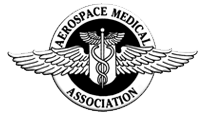SAFEGUARDING YOUR MEDICAL
by David Hale
VIRTUALLY EVERY ACTIVE PILOT will experience an FAA medical problem and without proper handling, grounding will be the result. Most pilots realize that every FAA exam is a potentially grounding event. New medical conditions are often discovered during an FAA exam. Sometimes the pilot is not even aware a condition spells grounding. Even if one understands the significance of a condition, one is usually unprepared for the lengthy evaluation and intricate paperwork which will follow.
When presented with a disqualifying condition, the FAA requires AME’s to document the condition and forward the application and medical certificate to the FAA’s Aeromedical Certification Division (AMCD) in Oklahoma City within two weeks.1
The FAA will process the application and the typical response is a form letter outlining the prerequisites for certification. The pilot has now been grounded for three to four months!
JUST LIE ABOUT IT This is a common and sometimes even successful approach, however, the FAA and your insurance company do have some pretty stiff penalties for this. You could be reported via the FAA’s anonymous toll-free number. Imprisonment, fines and certificate suspension are punitive options at the FAA’s disposal. If you have an accident not only will the FAA get nasty but your insurance company may not pay the claim.
-SOLUTIONS-
I – GET A REGULAR EXAM FROM YOUR PERSONAL PHYSICIAN I am often asked if it is a good idea to use an AME as a personal physician. While this one-stop-shopping may be handy, the AME is an agent of the FAA and as such is obligated to report your condition.2
If you are reluctant to divulge a potentially grounding health issue, this may be an indication that your doctor-patient relationship is less than ideal.
The Federal Aviation Regulations only require you to report a medical condition when you wish to resume flying. 3 Provided you ground yourself, you should wait until you have proof you are fit to fly before presenting your condition to the FAA. This approach will save both you and your AME time.
II – PRACTICE FOR YOUR FAA MEDICAL A pre-certification assessment is the best way to assure flight fitness. You should establish FAA medical eligibility before your FAA medical exam, this way if you do have a problem the paperwork which demonstrates your flight fitness is in-hand before your FAA exam. Pre-certification assessments virtually eliminate premature applications; as a result, valuable time once lost to deferred or denied applications is minimized rather than commonplace.
Pre-certification consultations are available from numerous organizations
| Aeromedical Resource | Service Provided | How to Contact |
| Aviation Medicine Advisory Service | Provides aeromedical support for ALPA, APA, IACP and FPA airline pilot unions | Contact your union |
| Aircraft Owners and Pilots Association | Information for members | 301-695-2000 (www.aopa.org) |
| Experimental Aircraft Association | Information and a network of AME advocates for members | 920-426-4800 (www.eaa.org) |
| Pilot Medical Solutions, Inc. | Information and case managers which manage medical records | 405-787-0303 (www.leftseat.com) |
III – HIRE A CASE MANAGER Aeromedical case manager’s speak the medical language and some will retrieve, review, organize, and submit medical records to the FAA. Case managers have aeromedical education and experience but most of all a familiarity with FAA bureaucracy. Early preparation may spare you from the frustration of a lengthy grounding period or denial. While very few pilots are ultimately denied, many pilots suffer needlessly because they don’t prepare or take advantage of help which is available. PLAN for your next FAA medical exam!
1. FAA, Guide for Aviation Medical Examiners, (Washington, D.C. : October1999),p.9.
2. United States Code, Title 18, Secs. 1001; 3571
3. United States Department of Transportation, Federal Aviation Regulations, FAR 61:53
David Hale is a commercial pilot and Director of Pilot Medical Solutions, Inc. He is a member of the Aerospace Medical Association, serves on the advisory board for Spartan School of Aeronautics, and is a contributing author to numerous publications; including, the Federal Air Surgeons Medical Bulletin.
_______________________________________________
![]() TWIN & TURBINE Magazine CARDIOVASCULAR CONDITIONS ARTICLE
TWIN & TURBINE Magazine CARDIOVASCULAR CONDITIONS ARTICLE
![]() TWIN & TURBINE Magazine SAFEGUARDING YOUR MEDICAL
TWIN & TURBINE Magazine SAFEGUARDING YOUR MEDICAL



